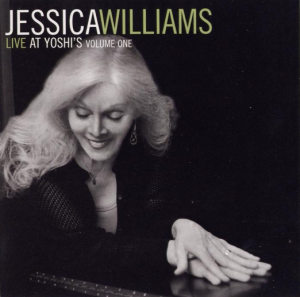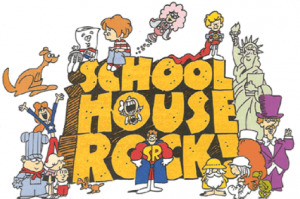
[The vastly talented Jessica Williams died on March 12, 2022. I originally published the following essay about her in July 2005. Jessica became my friend the night I first heard her in concert back then, and I was honored that our friendship deepened, and we stayed in touch until just a few months before her passing. Jessica was a remarkable musician and a beautiful human being. Her website is sadly no longer online, but you can still find examples of her exquisite music.—LG ]
Two nights ago I was invited to share in a magical, memorable evening of of music. Jessica Williams, the extraordinary jazz pianist, played an intimate and elegant concert at the home of my friend Richard. He had spoken to her after her concerts in Seattle over the years, and had the good fortune to be seated next to her on a flight from San Jose to Seattle some months back, which gave them time to share a friendly conversation. Richard is a jazz pianist himself and the owner of a fine piano, and he and Jessica spoke about the idea of her performing at his home for a small group of local jazz aficionados after she finished her bigger Seattle gigs. Happily, the idea became a reality. Seattle is a great town for jazz; the jazz community is avid, active, and friendly, and small enough that everyone gets to know everyone else before too long. This little group knew Jessica’s music well, and the buzz of delight and amazement that we could all get so close to a jazz master had us all feeling a little tipsy before anyone had a drop to drink.
Jessica is well-known and loved among jazz fans and players; the frequently repeated question is, why isn’t she better known to the rest of the world? She’s noted for her improvisational brilliance, has played with jazz greats such as Dexter Gordon and Leroy Vinnegar, and has received lavish praise from the likes of Dave Brubeck, McCoy Tyner, and Marian McPartland, on whose NPR radio show, Piano Jazz, Jessica has performed. Her pieces have often been played between interviews on NPR’s Fresh Air with Terry Gross; Terry is a great fan of hers and Jessica was interviewed on Fresh Air and performed an in-studio concert for Terry’s listeners in 1997. I highly recommend listening to the 2002 rebroadcast, available free online, which includes pieces by Monk and Gershwin and some of Jessica’s own beautiful compositions.
What makes her playing unique and exciting is a combination of dazzling technical skill and warm, melodic, lyrical feeling. Her touch is sure, she plays with conviction, and she has the chops to knock any other player out of his socks if she wants to. Yet at the same time, she breathes warmth and life into pieces that can feel cold in other hands. She can take an atonal, dissonant piece that others might treat as an exercise to show off virtuosity and find the spirit at its core, the life force behind the string of impressive notes, the hush in the middle of the chord that a show-off performer would miss.
Jessica finds great inspiration and pleasure in playing compositions by Thelonious Monk, who’s notorious for being tricky to follow or hard to get. Despite having written the accessible but wonderful ballad “‘Round Midnight,” Monk can sometimes be rough, bouncy and dissonant. When Jessica plays him, however, she isn’t afraid to lighten him up, play up the humor behind the notes, to show the subtlety in his compositions so one can feel the thought behind the dissonances, and understand why they’re right and not random.
Jessica was classically trained, so early on she still believed that there were rules that couldn’t be broken and techniques that must be followed when playing piano. She told Terry Gross the first time she heard a record of Monk playing, she thought he sounded like he was wearing boxing gloves at the piano. But with continued listening, she grew to love his openness to new techniques. She incorporated some of them into her own playing and has developed other innovative techniques that amplify the feeling in her music without ever getting lost in tricks for the sake of tricks.
Sometimes Jessica reaches into the piano to strum the strings while playing keys, incorporating a sound like an autoharp into her playing, as she did at the beginning and end of “Getting Sentimental Over You” when she played it during her Fresh Air concert. She’s careful not to overuse it, however; she doesn’t want to become gimmicky but likes to explore the variety of sounds that a piano can make and integrate these devices into the tunes to add color. During this week’s concert, she reached into the piano to strum it at several points, and she occasionally shuffled the soles of her shoes across the wood floor to create a sound like a drummer would with a brush, or like a softshoe dancer might. She also likes to quote other jazz compositions when she plays, a common tip of the hat from one jazz musician to another, throwing a few measures of a well-known jazz standard into a piece for humor and as an homage. She improvises these surprises and tosses them as little treats for the audience, each one a lagniappe to lighten the heart when listeners get too earnest and caught up in the piece.
On Monday night, she began with a piece by John Coltrane, “Wise One,” followed by “The Very Thought of You” by Ray Noble, “Paul’s Pal” by Sonny Rollins, and two pieces by Monk, “Ugly Beauty” and “Nutty.” I’ve never enjoyed Monk as much as I did that evening. She has said that record producers have often pushed her to show off more of her impressive technique, focusing on speed and flash, and playing Monk certainly allows her that, but she plays him with more subtlety and insight. There’s intelligence in her playing without cold intellectualism, an awareness of exactly what note, what chord, what sense of space is necessary to make a phrase work while still holding the meaning of the song, its essence, the point of it all, in her heart. For her, the most satisfying playing involves a spiritual element. As she told me, she can emphasize flash and technique when she’s playing in a wild or distracted venue or on a bad piano that can’t hold up to subtlety; she can adapt and please the audience when that’s what’s called for. But when she is in the right space with a good instrument and a receptive audience, this nuanced and spiritual essence of her playing emerges, and a thrilling pleasure in being right there, right then, with her, in the palm of her hand, fills the audience, or, in the case of someone lucky enough to own her CDs, fills the listener sitting alone at home if she or he gives her pieces the attention they deserve.
Jessica’s playing is so lovely and lyrical that it’s more accessible than many jazz pianists without ever crossing over into that scary “lite jazz” territory. She began her second set with Irving Berlin’s “They Say It’s Wonderful” from the musical Annie Get Your Gun—songs don’t come much more accessible than that. And yet in her hands it was anything but trite; it was fresh again, and as pure as it was when Berlin wrote it. One of my favorite moments in the evening came when she played Dexter Gordon’s “Don’t Explain.” I’ve always loved Billie Holiday’s version, so it’s hard for me to give other artists due credit when they play it, it’s so associated with Lady Day in my mind. But I was right there with Jessica, note for note. Her love for Dexter Gordon the man, as well as for his music, was evident in her playing, and it was an emotionally rich piece.
She followed it with her own eloquent ode to her friend, “I Remember Dexter,” and two more of her elegant compositions, “Poem in G minor” and “Sheikh.” She ended with a gorgeous rendition of Duke Ellington’s “Mood Indigo” that left me so touched I had to compose myself before I could shake her hand and tell her what a wonderful evening it had been. Ellington himself would have pronounced her performance “beyond category.” At the end of that second set, I realized I’d been staring rapt at her hands the whole time and hadn’t even looked up once to see the faces of the other people sitting around me. At the end of the concert I saw the same grateful wonder in their eyes that I felt, that we could be sitting 10 feet from greatness and share in this experience.
Before the concert, I had the pleasure of talking with Jessica in the kitchen. For all her skill and mastery, and despite all the swooning and kudos afforded her by fans and fellow artists, she is anything but a diva. She was humble and gracious, and she spoke of the pleasure she takes in her art and in sharing life with friends, of the places around the world in which she’s lived, of the kindnesses shown her by several jazz artists, like Dexter Gordon and his wife. She’d never met me before, but asked me about myself as well, and listened and cared about what I had to say. She was there, standing in a kitchen with a stranger, present in the moment and open to the experience. She showed a respectful, commonsense kindness with me and everyone present which I wish was shared by all people of such accomplishment and fame.
Jessica’s lived courageously and taken risks, turned corners when she was told what a mistake it was and been true to her heart, her music, and her passions. She’s been open to new techniques, to new styles, to resurrecting older ideas or creating new sounds that resonate with her heart. The result is a lovely, gracious, multifaceted woman who creates beauty and cares about the world around her and the people in it.
Andrew Gilbert wrote beautifully of Jessica and her art for the San Jose Mercury News: “A tremendously assured musician, Williams marks her style with ravishing lyricism and daring improvisational flights. But what really sets her solo performances apart is her gift for seamlessly weaving together various jazz keyboard styles, encompassing the highly syncopated stride school of the ’20s and ’30s, the light, effortlessly dancing approach of the swing era, the jagged single-note runs of bebop and the rhythmically diffuse sound perfected by Bill Evans in the ’60s, all integrated into an organic whole by her compelling sense of narrative flow.”
Postscript: When I first met Jessica, her website’s homepage quoted one of her favorite musicians and people, John Coltrane. It said: “I want to be a force for good. I know there are bad forces here that bring suffering to others and misery to the world, but I want to be the force which is truly good.” This quotation was so apt for Jessica; she lived her life in a way that brought pleasure to others, and she shared her remarkable talents and hopes with others through her musical gifts. She lived her values and spoke through her art. Jessica was an extraordinary person; she will always be my cherished friend.

